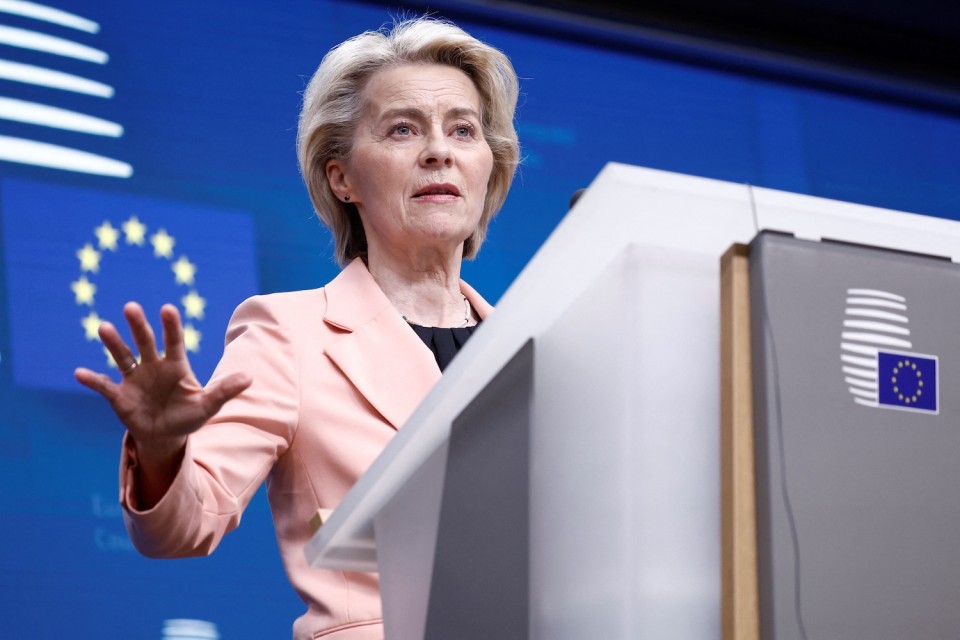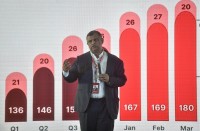
BRUSSELS, Belgium, March 22, 2024 (AFP) – EU chief Ursula von der Leyen said Thursday Brussels was proposing raising tariffs on Russian and Belarusian grain to protect Europe’s farmers and punish Moscow over its war on Ukraine.
The announcement came hours after Ukrainian President Volodymyr Zelensky complained to EU leaders that it was not fair Russian grain continued to have “unrestricted” access to their markets, while Ukrainian imports were being limited.
“It will prevent Russian grain from destabilising the EU market in these products. It will stop Russia from using the revenues from the export of these goods,” the head of the European Commission said after an EU summit in Brussels.
A day earlier, the EU struck a deal to cap duty-free imports of a range of Ukrainian farm goods — which were allowed in the wake of Russia’s invasion but have drawn fierce protests from farmers in the bloc.
In his address to leaders, Zelensky warned that curbs on EU trade with Ukraine undermined his country’s “ability to withstand Russian aggression”.
“Any loss in trade is a loss of a resource that stops Russia,” he said.
Five European Union nations — Poland, the Czech Republic and three Baltic states — had appealed jointly to the European Commission to impose a full ban on grain imports from both Russia and Belarus.
Under World Trade Organization rules, Russian agricultural imports have until now been exempt from EU import duties.
While the EU has taken aim at huge swathes of Russia’s economy in waves of sanctions since 2022, it has taken care not to target the farm or fertiliser sectors — for fear of destabilising the global cereal market, and undermining food security in Asia and Africa.
The 27-nation bloc had initially dropped tariffs on Ukrainian imports in a bid to help keep the country’s economy afloat after the Russian invasion in February 2022.
It changed course after months of protests by farmers, which have been whipping up anti-establishment sentiment ahead of EU elections, extending the exemption but with “safeguards” to stop lower-cost Ukrainian imports from flooding the market.







